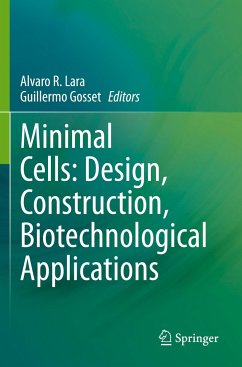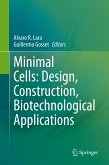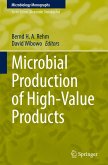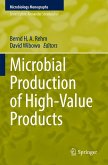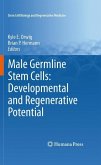This book provides a comprehensive overview of the design, generation and characterization of minimal cell systems. Written by leading experts, it presents an in-depth analysis of the current issues and challenges in the field, including recent advances in the generation and characterization of reduced-genome strains generated from model organisms with relevance in biotechnology, and basic research such as Escherichia coli, Corynebacterium glutamicum and yeast. It also discusses methodologies, such as bottom-up and top-down genome minimization strategies, as well as novel analytical and experimental approaches to characterize and generate minimal cells. Lastly, it presents the latest research related to minimal cells of serveral microorganisms, e.g. Bacillus subtilis.
The design of biological systems for biotechnological purposes employs strategies aimed at optimizing specific tasks. This approach is based on enhancing certain biological functions while reducing other capacities that are not required or that could be detrimental to the desired objective. A highly optimized cell factory would be expected to have only the capacity for reproduction and for performing the expected task. Such a hypothetical organism would be considered a minimal cell. At present, numerous research groups in academia and industry are exploring the theoretical and practical implications of constructing and using minimal cells and are providing valuable fundamental insights into the characteristics of minimal genomes, leading to an understanding of the essential gene set. In addition, research in this field is providing valuable information on the physiology of minimal cells and their utilization as a biological chassis to which useful biotechnological functions can be added.
The design of biological systems for biotechnological purposes employs strategies aimed at optimizing specific tasks. This approach is based on enhancing certain biological functions while reducing other capacities that are not required or that could be detrimental to the desired objective. A highly optimized cell factory would be expected to have only the capacity for reproduction and for performing the expected task. Such a hypothetical organism would be considered a minimal cell. At present, numerous research groups in academia and industry are exploring the theoretical and practical implications of constructing and using minimal cells and are providing valuable fundamental insights into the characteristics of minimal genomes, leading to an understanding of the essential gene set. In addition, research in this field is providing valuable information on the physiology of minimal cells and their utilization as a biological chassis to which useful biotechnological functions can be added.

